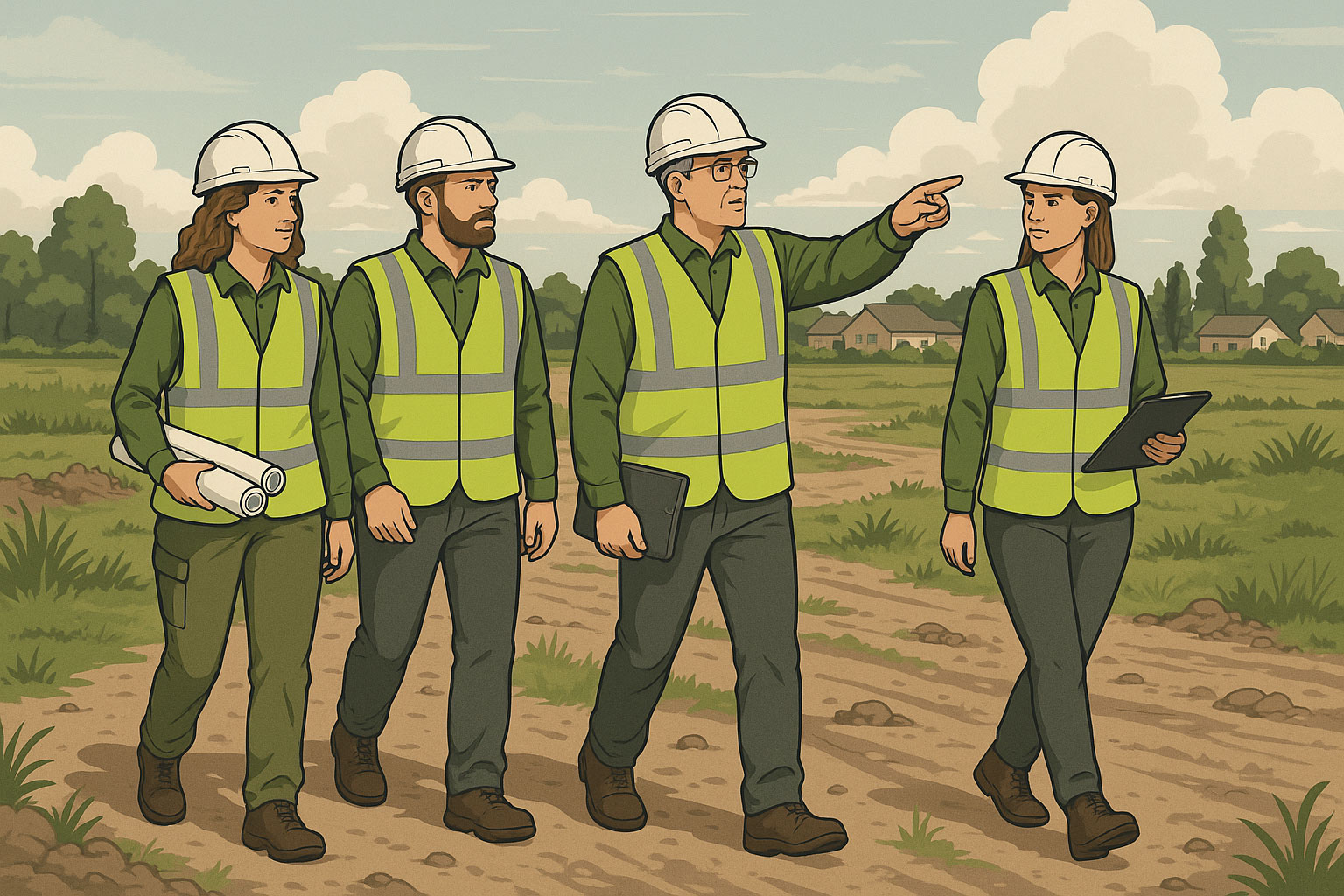
How to Get Planning Permission When Contamination Is Suspected
If a site has previously been used for industrial or commercial purposes, or is listed on a contaminated land register, local planning authorities may request an environmental risk assessment. A Phase 1 Desktop Study is the typical first step.
Planning Authorities and Environmental Due Diligence
Environmental concerns can be a reason for delayed or rejected applications. Many councils require evidence that the potential for land contamination has been assessed and, if needed, addressed through further investigation.
A Phase 1 Desktop Study includes:
- Review of historical maps and aerial imagery
- Analysis of local land use data
- Review of regulatory databases (e.g., landfill records, discharge consents)
- Conceptual site model and risk assessment
Next Steps After the Phase 1 Desktop Study
If the report identifies a low risk of contamination, the local authority may accept the study with no further action. If a moderate or high risk is identified, you may need to commission a Phase 2 (intrusive) site investigation.
Professional Support for Planning Applications
Our experienced team prepares detailed, clear, and concise Phase 1 Desktop Studies that align with national planning requirements and BS10175. We can also advise on next steps if further investigation is needed.


